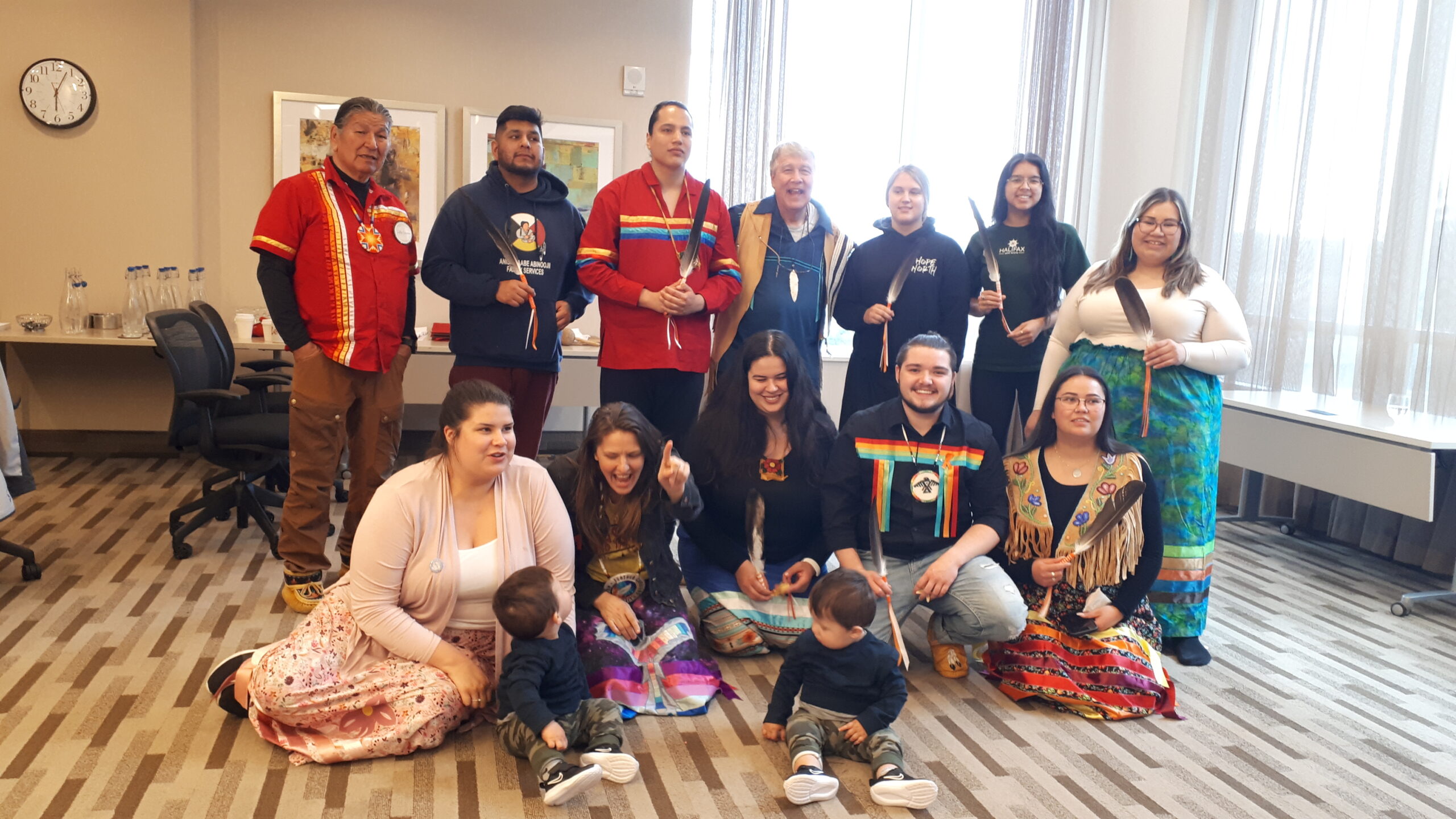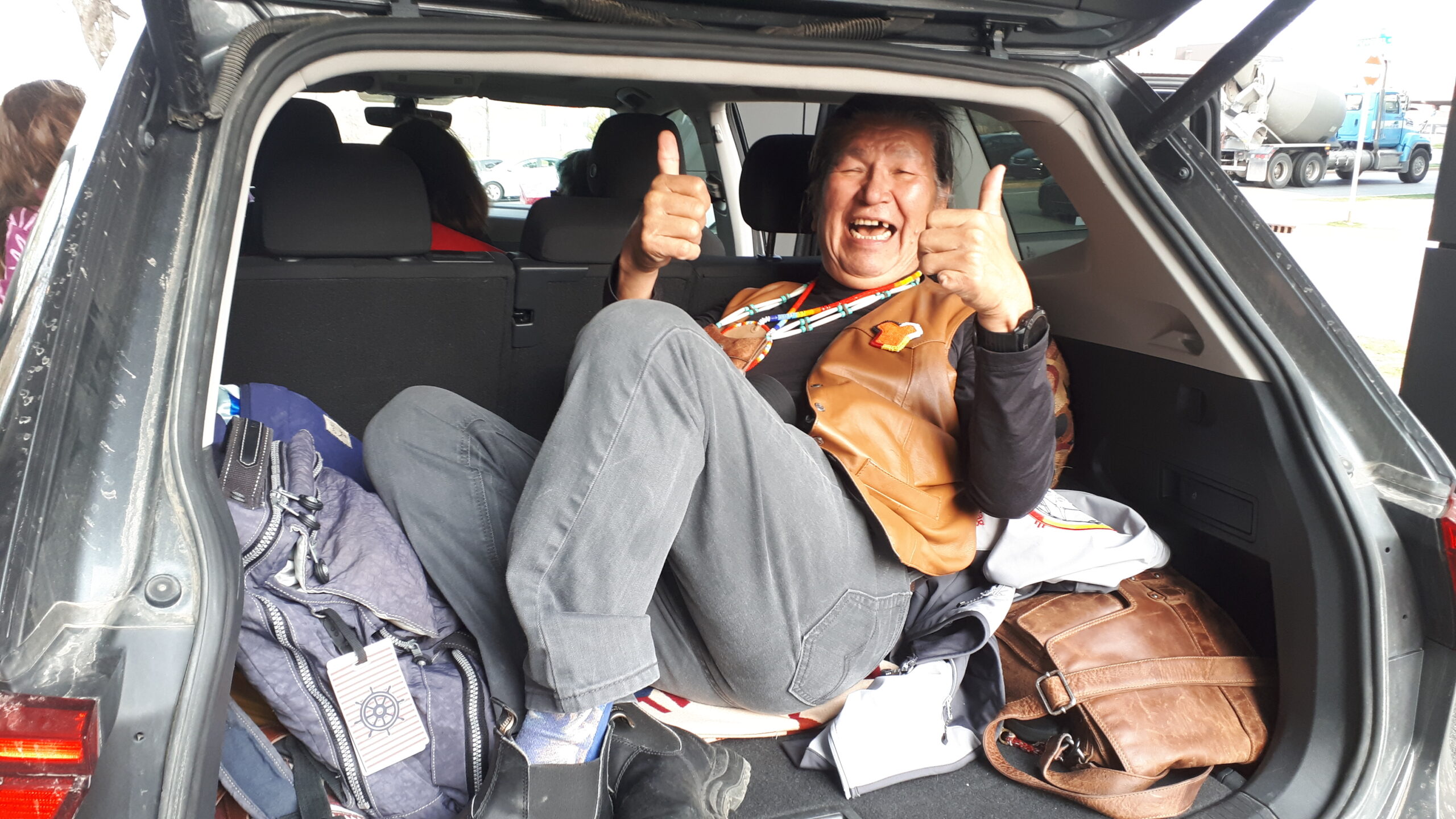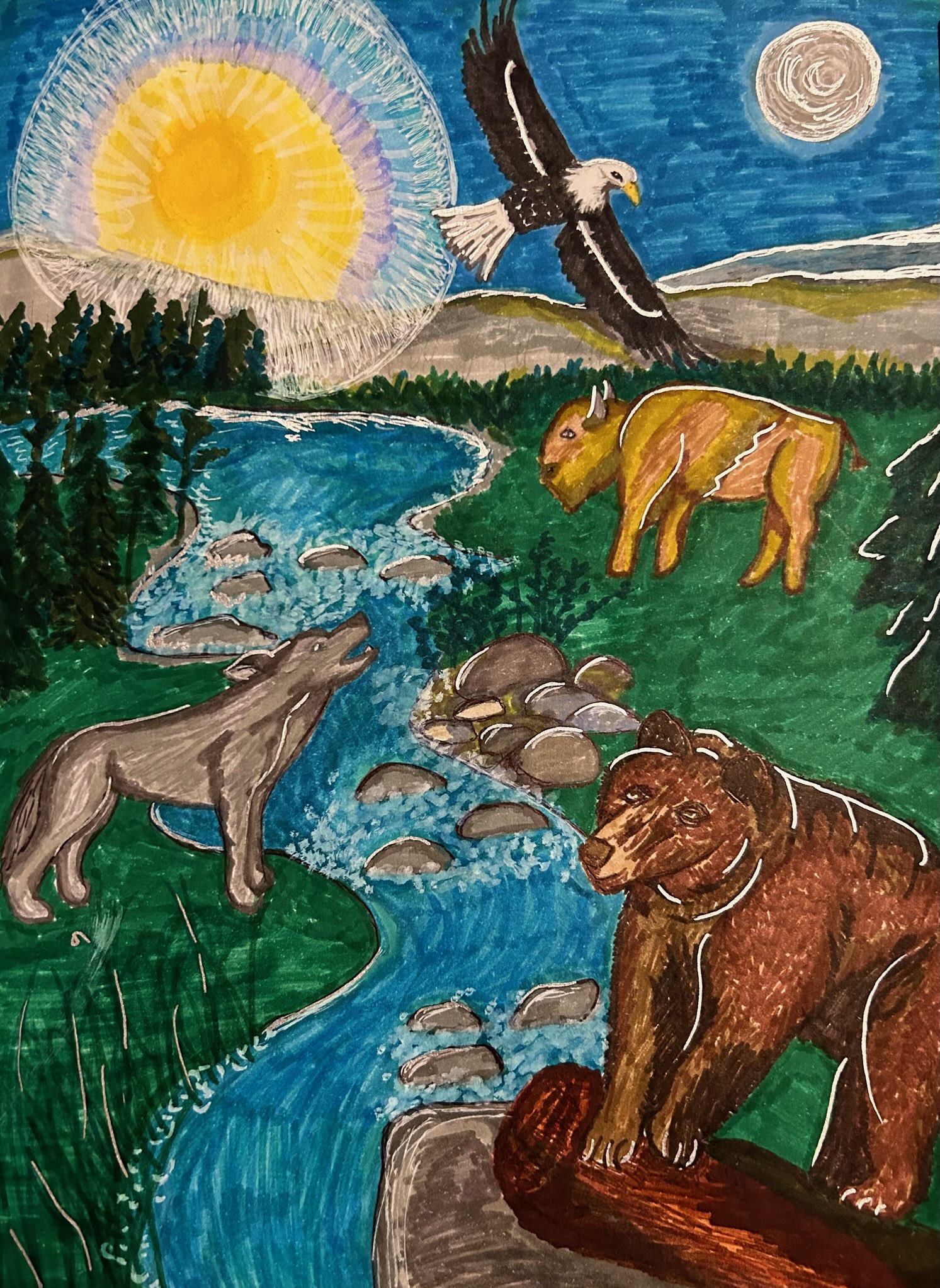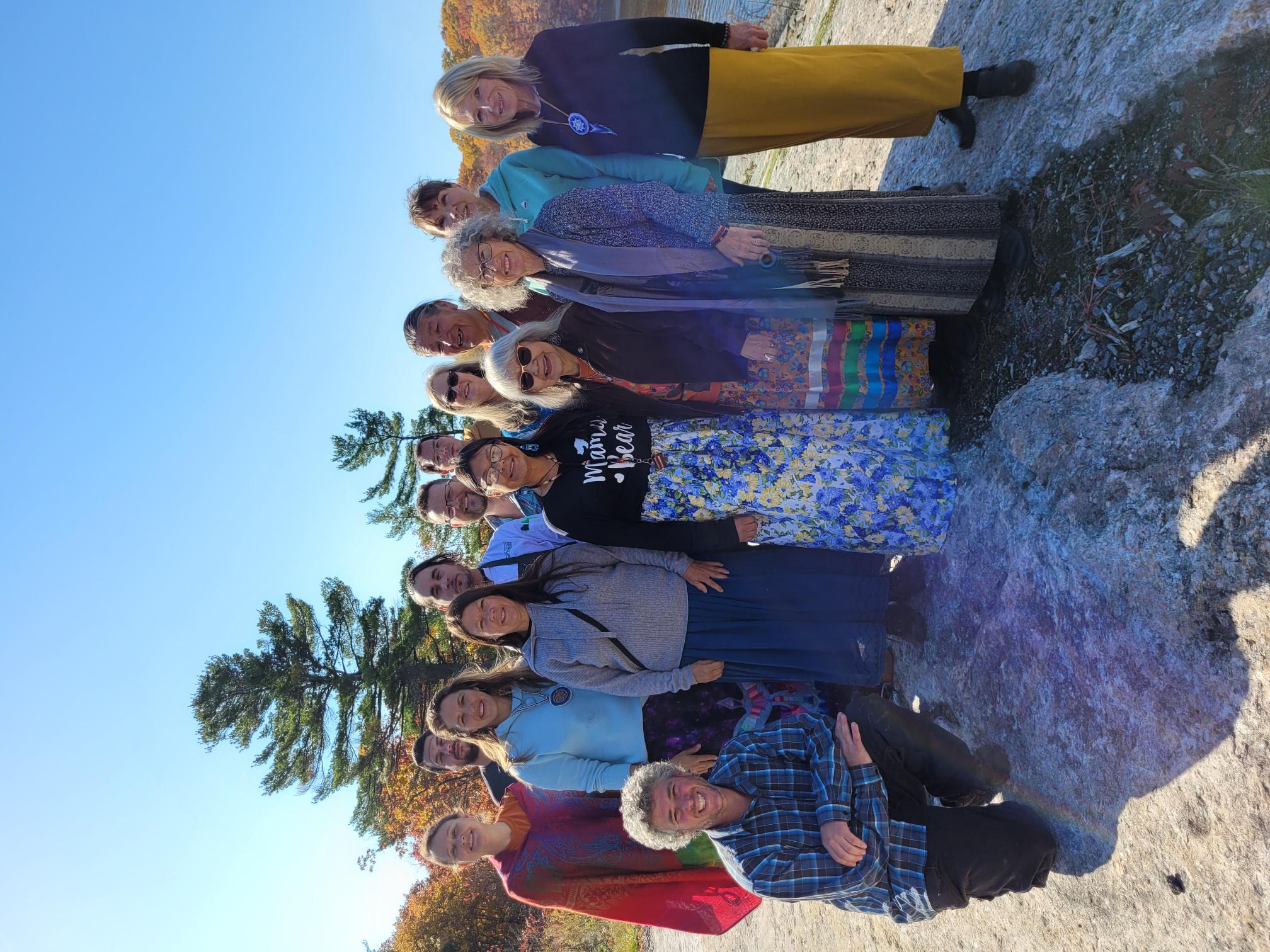What We Offer
Bear Art by Rae Gibeault
Feather Carriers provides suicide intervention training to communities and organizations across Turtle Island from our origins in the southern watershed of Manido’wi zaagaiaagan (Spirit Lake) – Georgian Bay and Wawaseyaaguming (Shining Lake) – Lake Simcoe. Waters that have historically sustained the lives of the Wendat, and today the Anishinaabe, Haudenosaunee and Metis. Who, through various agreements generously share this life with nations and newcomers from all corners of Mother Earth.
Our primary training takes the place in the form of teaching circles (cohorts) that meet over the course of a year for groups of 20-25 people. The cohorts are created in collaboration with a host organization or community that covers the cost of the training. See below for an overview of the training year. Participants are trained in methods of life promotion and ways of using cultural knowledge.
The training is intended for those who will be working with people experiencing suicidal ideation, but in addition is for anyone who will be working to promote life in their community or in their work. Life promotion looks at the underlying causes of suicidal ideation, the loss of meaning and connection to life, and so those who work to make their community healthier and more meaningful are invited to join, such as educators, mentors, coaches and community leaders.
We provide consultation and guidance to organizations that wish to incorporate life promotion teachings into their work, such as schools and social services.
We provide a more condensed version of the training for one day gatherings and educational curriculum for schools.
Feather Carriers also hosts annual events such as the Eagle Staff feast and the community gathering of the Big Hearted People, which are open to the public, and occasional online teachings with elders and knowledge keepers.

The Year
Feather Carriers can begin in any season, depending on the needs of the community or organization, although we do our best to avoid meeting in the winter, when weather often creates dangerous travel conditions. We can accommodate those who need to participate virtually but emphasize the spiritual value in learning the teachings in person. The cohort meets 4 times over the course of a year for a total of 5 training days. Days 1 and 2 are held back to back.
Everyone is welcome to join us for sunrise ceremony to open the first day. We also open our graduation (day 5) with a sunrise ceremony.

The Training
We open the training with ceremony so you are invited to have any sacred items you wish to have present with you, and you are encouraged to bring your medicine bundle. This can include tobacco/sama, sage or sweet grass for smudging, water to drink during a water ceremony and a candle to burn, or the medicines you carry from your culture. This is not required and the participants are not required to join in any of the activities that we offer. We make it clear as we open that everyone is invited to participate as they feel comfortable and that we respect all people’s beliefs and practices.
We take regular breaks throughout the day to ensure that we all remain rested and the overall learning experience of these teachings is interactive. However, the first two days contain an introduction and overview to our Feather Carriers teachings and learning experiences. We also provide a copy of the materials that we will share with you during our time together. If you wish to print these documents to refer to during our session you are welcome to do so.
You might also choose to have a journal. We encourage you to take notes and to log your reflections within a diary throughout the year long journey of life promotion.
The Graduation
Day 5 is for the graduation. The cohort meets again in the same season they started, demonstrating the change that takes place with the passing of time. The main work of the day is for the participants to individually present their response to the offer to take up the work of life promotion. The process and content of the presentations will be discussed during the training. Each participant will be offered an eagle feather to help them with the responsibility of promoting life, and there is a dancing out ceremony at the end.
The graduation ceremony is a celebration. There is a feast and friends, family and other miigwanaabiik (feather carriers) are encouraged to attend.
Learning Outcomes
After Feather Carriers
The end of the Feather Carriers training is the beginning of a dialogue with the idea of life promotion.
New Feather Carriers/Miigwanaabiik return to their communities and their organizations and are encouraged to use and pass on what they learned. For example, the drawing of the Miikaans (little roads) teaching, the map of life, is for anyone to teach and be taught. The same is true of all the Feather Carrier teachings.
Those who have graduated Feather Carriers are welcome to become teachers in training or ozhiitaa jig (those who are picking up their gifts). Ozhiitaa jig help teachers with cohorts and take part in teaching.
Promoting life is a long road, the teachings might be seen as planted seeds that will grow differently in each individual and each community. The Feather Carriers organization maintains contact with the miigwanaabiik after the training is over. We host free events for them, such as online teachings and the Eagle Staff feast which takes place once a year.
Feather Carriers are encouraged to collaborate and meet. Local groups could take on projects such as forming support groups in the wake of a premature unnatural death in the community, cultural revitalization projects, or mutual assistance hubs. The Feather Carriers organization can assist with fostering and growing these local groups when asked.




